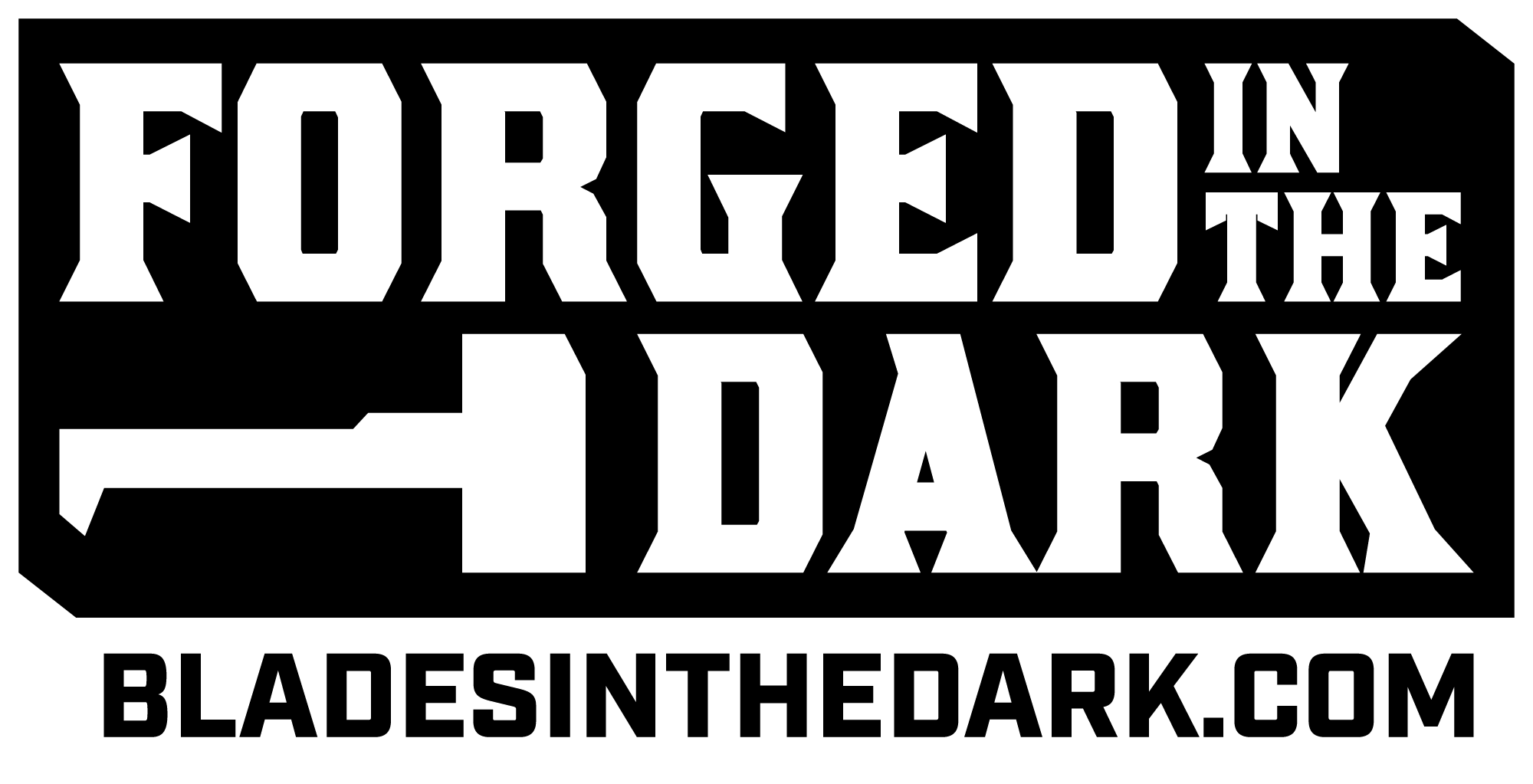Cohorts 
A cohort is a squad or an expert who works for your crew. To recruit a new cohort, spend two supply and create them using the process below.
Creating a squad
Choose a squad type from the list below:
- Agents: Spies, thieves, scouts, and operatives. Trained in Finesse and Prowl.
- Boffins: Techies, hackers, analysts, and academics. Trained in Study and Tinker.
- Insiders: Executive assistants, courtiers, traders, and gossipmongers. Trained in Attune and Consort.
- Muscle: Soldiers, brawlers, guards, and bouncers. Trained in Skirmish and Wreck.
- Logistics: Pilots, medics, and cleaners. Trained in Command and Sway.
- Watchers: Sentries, infiltrators, lookouts, and sentinels. Trained in Hunt and Survey.
A new squad starts with six members. When members are lost (whether through attrition or promotion), the Quartermaster’s Recruit action can replenish the squad with new members.
Members who gain 6xp can be promoted by Personnel to an expert. They gain an investigative skill and an extra point to allocate to an action of their choice.
Some crew upgrades will add the “Elite” feature to a squad, which gives them +1d to their trained skills. So, if you have a squad of Elite Muscle (+1d), they would roll 2d when they use Wreck.
Creating an expert
Record the specific area of expertise. They might be a Doctor, an Insurance Investigator, an Art Historian, a Forensic Pathologist, a Drone Operator, etc. The list of investigative skills is a good starting point if you need inspiration.
An expert created by the Recruit action has five attribute points and one investigative skill.
An expert created by promoting a squad member retains their existing edges and flaws, existing action points and gains one extra action point and one investigative skill.
Once an expert has 6xp Personnel can be promote them to a field agent - they choose a playbook and bring over their existing action points and investigative skill.
Edges & flaws
When you create a cohort, give them one or two edges and an equal number of flaws.
Edges
- Fearsome: The cohort is terrifying in aspect and reputation.
- Independent: The cohort can be trusted to make good decisions and act on their own initiative in the absence of direct orders.
- Loyal: The cohort can’t be bribed or turned against you.
- Tenacious: The cohort won’t be deterred from a task.
Flaws
- Cruel: The cohort is excessively violent, sadistic, or cruel.
- Principled: The cohort has a strict ethic or values that it won’t betray.
- Unreliable: The cohort isn’t always available, due to other obligations, poor time management, etc.
- Wild: The cohort is drunken, debauched, and loud-mouthed.
Using a cohort
When you send a cohort to achieve a goal, roll the appropriate action to see how it goes - hopefully it’s one of their trained ones! Or, a PC can oversee the maneuver by leading a group action. If you direct the cohort with orders, roll Command. If you participate in the action alongside the cohort, roll the appropriate action. The quality of any opposition relative to the cohort’s quality affects the position and effect of the action.
The PCs crew of Detectives want to run a street gang out of the area. They send their squad of Muscle to go kick the interlopers out. The GM rolls 2d for the squad’s quality, and gets a 3. An hour later, the Muscle come back, beaten and bloody. One of them looks sheepish, “Those guys are tough, captain.” (The GM inflicts harm on the cohort, and they failed their goal.)
The next day, the team’s controller goes back and leads a group action, rolling her 3d in Skirmish alongside the Muscle’ 2d. The boss gets a 6; this time—they beat the tar out of the gang and send them packing (at least for now).
Cohort stress
Cohorts only clear stress by earning R&R (not being assigned to a mission) or by lowering their guard during a mission. When their stress bar fills up, the effect is a little different than with a field agent.
- They cannot spend stress for the rest of the mission. This means they can’t aid others or push themselves, among other things.
- They distrust the agent in charge. This can lead to complications on future missions until the trust is repaired in some way.
- An expert loses one edge OR gains one flaw.
- A squad loses one edge, gains one flaw, OR removes two members.
Cohort harm & healing
Cohorts suffer harm similarly to PCs. A cohort can suffer four levels of harm:
- Weakened. The cohort has reduced effect.
- Impaired. The cohort operates with reduced quality (-1d).
- Broken. The cohort can’t do anything until they recover.
- Dead. The cohort is destroyed.
All of your cohorts heal during downtime. If circumstances are amenable for recovery, each cohort removes one level of harm (or two levels of harm instead, if a PC spends a downtime activity helping them recuperate).
If a cohort is destroyed, it may be replaced. A squad can be replaced by the Quartermaster’s Recruit action. An expert can be replaced by Personnel promoting a squad member.
